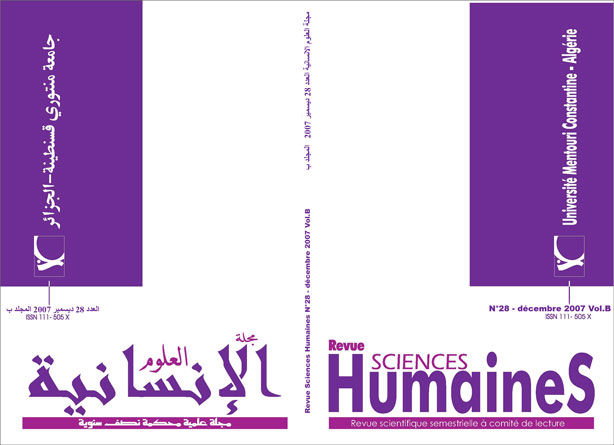The Importance of Vocabulary Development In Reading Comprehension in Efl Classes.
Abstract
iIt seems almost impossible to overstate the power of words. Perhaps the greatest tools we can give students, not only in their education but more generally in life, is a large, rich vocabulary. This article reports on the importance of vocabulary to reading achievement. Providing vocabulary instruction is one of the most significant ways in which teachers can improve students’ reading comprehension. Readers cannot understand what they are reading without knowing what most of the words mean. A large vocabulary is more specifically reflective of high levels of reading achievementDownloads
References
-Beck, I. and McKeown, M. (1991), “Conditions of vocabulary acquisition.” In R. Barr, M. Kamil, P. Mosenthal, & P. D. Pearson (eds), Handbook of reading research Vol.2,pp. 789-814 . New York: Longman.
-Bogaards, P. and B. Laufer (2004) Vocabulary in a Second Language. Bogaards & Laufer ( eds ), John Benjamins Publishing Company, Amsterdam.
-Ediger, M. (1999) “Reading and Vocabulary Development.” Journal of Instructional Psychology, 26(1).
-Gu, Y. and R. Johnson ( 1996), “Vocabulary Learning Strategies and Language Learning Outcomes.” Language Learning,64, 4, pp. 643-679.
-Hatch, E. and C.Brown (1995) Vocabulary, Semantics and Language Education. Cambridge University Press.
-Hymes,D.(1972), "On Communicative Competence" in , Sociolinguistics, edited by J.B. Bride and J. Holmes, Penguin, Harmondsworth.pp. 269-295
-Krashen, S. (1989), “We acquire vocabulary and spelling by reading: additional evidence for the input hypothesis.” Modern Language Journal, 73(4), 440-464.
-Laflamme, J. G. ( 1997 ), “The Effect of Multiple Exposure Vocabulary method and the target reading/writing strategy on test scores.” Journal of Adolescent and Adult Literacy, 40(5), P.372, 10p.
- Lewis, M. ( 1993 ), The lexical approach: the state of ELT and ways forward. Hove, England: Language Teaching Publications.
- Lewis, M. ( 1997 a ), “Implementing the lexical approach: putting theory into practice.” Hove, England: Language Teaching Publications.
-Lunzer, E. and K.Gardner ( 1979 ) The Effective use of Reading. London. Heinemann.
-Meara, P. ( 1980 ),”Vocabulary acquisition: a neglected aspect of language learning.” Language Teaching and Linguistics: Abstracts, 13(4), 221-247.
-Nagy, W. and P. Herman ( 1987 ), “Breath and Depth of vocabulary knowledge: implications for acquisition and instruction.” In M. McKeown and M. Curtis (eds.), The nature of vocabulary acquisition pp. 19-35. Hillsdale,NJ: Lawrence Erlbaum.
-Nattinger, J. (1980) “A lexical phrase grammar for ESL.” TESOL Quarterly, 14, 337-344.
-Nuttal, C. (1982), Teaching Reading Skills in a Foreign Language. London. Heinemann.
-Rupley, W. H., Logan, J.W., and Nickols, W.D. (1999), “Vocabulary Instruction in a Balanced Reading Program.” Reading Teacher, 52 (4), p. 336, 11p. University Press.
-West, M. (1930) A General Service List of English Words. London: Longman, Green and Co.
-Wilkins, D. (1972) Linguistics in Language Teaching. London: Edward Arnold.
-Zimmerman, C.B. (1997) “Historical trends in second language vocabulary instruction.” In
J. Coady & T. Huckin ( eds.), Second Language Vocabulary Acquisition: a rationale for pedagogy pp. 5-19 . Cambridge: Cambridge.












